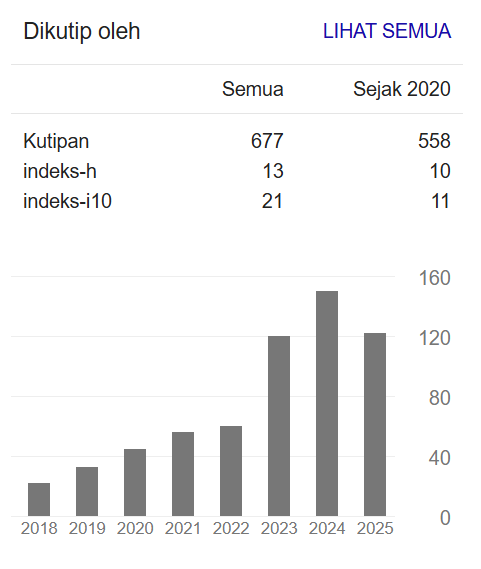THE ROOTS OF MODERN POLITICAL SECULARISM AND ITS CRITIQUE
DOI:
https://doi.org/10.20871/kpjipm.v9i2.280Keywords:
Political Philosophy, Secularism, Social Contract, State of Nature, TamaddunAbstract
Discussions about politics and human power, including discussions about the concept of the state, have been a discussion that has been going on since Greek times until the time of the growth of Islamic philosophy. The overemphasis on the power of reason led early modern Western societies to reject religion in all political discourse. At this stage, all views of man, power, the constitution, and the state eventually ceased to be associated with God. On the other hand, especially among Muslims, religion is still connected with discussions of politics and human power. This paper will reveal how secularization in political thought grew and developed through principles such as the state of nature and the social contract. Then, based on the thought of one of the influential Muslim scholars, Syed Muhammad Naquib Al-Attas, the author tries to provide a critique of the views of Western thinkers such as Thomas Hobbes, John Locke, and other philosophers, by presenting the concept of the ideal state form derived from the concept of tamaddun formulated by Al-Attas. This research is literature review research using the descriptive method. The findings of this research show that secularization is a product purely born by Western secular thinkers and not taken from any religious teachings, so Western political concepts cannot always be applied, especially in Muslim societies.
Downloads
References
Attas, Syed Muhammad Naquib Al-. 1993. Islam and Secularism. Kuala Lumpur: International Institute of Islamic Thought and Civilization (ISTAC).
———. 1995. Prolegomena to the Metaphysics of Islam: An Exposition of the Fundamental Elements of the Worldview of Islam. Kuala Lumpur: International Institute of Islamic Thought and Civilization (ISTAC).
———. 2001. Risalah Untuk Kaum Muslimin. Kuala Lumpur: Institut Antarabangsa Pemikiran dan Tamadun Islam.
Bahari, Yohanes. 2010. “Karl Marx: Sekelumit Tentang Hidup dan Pemikirannya.” Jurnal Pendidikan Sosiologi dan Humaniora 1 (1): 1–10. https://dx.doi.org/10.26418/j-psh.v1i1.375.
Carr, Ryan. 2022. “Indigenous Secularism and the Secular-Colonial.” Critical Research on Religion 10 (1): 24–40. https://doi.org/10.1177/20503032221075384.
Cox, Harvey. 2013. The Secular City: Secularization and Urbanization in Theological Perspective. Princeton: Princeton University Press. https://doi.org/10.1080/10848770.2016.1169591.
Fukuyama, Francis. 1992. The End of History and The Last Man. New York: Avon Book.
Gorski, Philip S., and Ateş Altınordu. 2008. “After Secularization?” Annual Review of Sociology 34 (1): 55–85. https://doi.org/10.1146/annurev.soc.34.040507.134740.
Harrison, Ross. 1993. The Problems of Philosophy: Democracy. Edited by Tim Crane and Jonathan Wolff. London & New York: Routledge Taylor & Francis Group.
Henderson, James (Sákéj) Youngblood. 2000. “The Context of the State of Nature.” In Reclaiming Indigenous Voice and Vision, edited by Marie Battiste. Vancouver B.C: UBC Press.
Hobbes, Thomas. 1991. Leviathan. Edited by Richard Tuck. Cambridge: Cambridge University Press.
Holyoake, George Jacob. 1896. English Secularism: A Confession of Belief. Chicago: The Open Court Publishing Company.
Husaini, Adian. 2005. Wajah Peradaban Barat. Jakarta: Gema Insani Press.
Iqbal, Basit Kareem. 2020. “Asad and Benjamin: Chronopolitics of Tragedy in the Anthropology of Secularism.” Anthropological Theory 20 (1): 77–96. https://doi.org/10.1177/1463499618770310.
Kartanegara, Mulyadhi. 2007. Nalar Religius: Memahami Hakikat Tuhan, Alam, dan Manusia. Jakarta: Penerbit Erlangga.
Katz, Richard S., and Peter Mair. 1994. How Party Organize: Change and Adaptation in Party Organizations in Western Democracies. London: Sage Publication.
———. 1996. “Cadre, Catch-All or Cartel? A Rejoinder.” Party Politics 1 (1): 5–38.
Khaldun, Ibn. 2005. The Muqaddimah: An Introduction to History. Edited by Franz Rosenthal. Princeton: Princeton University Press.
Lane, Edward William. 1863. An Arabic-English Lexicon. London.
Locke, John. 2003. Two Treatises of Government and A Letter Concerning Toleration. Edited by Ian Shapiro. New Haven: Yale University Press.
Lyotard, Jean-François. 1984. The Postmodern Condition: A Report on Knowledge. Edited by Geoff Bennington and Brian Massumi. Minnesota: University of Minnesota Press.
Machiavelli, Niccolo. 2008. The Prince. Edited by James B. Atkinson. Indianapolis: Hackett Publishing Company, Inc.
Manẓūr, Ibn. n.d. Lisān al-‘Arab. Beirūt: Dār Ṣadir.
Nasr, Seyyed Hossein. 1989. Knowledge and the Sacred. New York: State University of New York Press. https://doi.org/10.2307/1399476.
———. 1993. The Need for a Sacred Science. Richmond: Curzon Press. https://doi.org/10.35632/ajis.v12i2.2377.
Rohman, Abdul, Ahmad Ahmad, Amir Reza, and Muhammad Ari Firdausi. 2021. “Melacak Makna Worldview: Studi Komparatif Worldview Barat, Kristen, dan Islam.” Kanz Philosophia A Journal for Islamic Philosophy and Mysticism 7 (1): 45–64. https://doi.org/10.20871/kpjipm.v7i1.147.
Russell, Bertrand. 2005. History of Western Philosophy. London: Taylor & Francis e-Library.
Scholte, Jan Aart. 2014. “Reinventing Global Democracy.” European Journal of International Relations 20 (1): 3–28. https://doi.org/10.1177/1354066111436237.
Shobahussurur, Shobahussurur. 2015. “Lembaga Pendidikan dalam Khazanah Klasik: Telaah Proses Sejarah dan Transmisi Ilmu Pengetahuan.” TSAQAFAH 11 (1): 89–112. https://doi.org/10.21111/tsaqafah.v11i1.255.
Suhelmi, Ahmad. 2001. Pemikiran Politik Barat. Jakarta: Gramedia Pustaka Utama.
Wijaya, Daya Negeri. 2016. “Kontrak Sosial Menurut Thomas Hobbes dan John Locke.” Jurnal Sosiologi Pendidikan Humanis 1 (2): 183–93. http://dx.doi.org/10.17977/um021v1i22016p183.
Zarkasyi, Hamid Fahmy. 2013. “Worldview Islam dan Kapitalisme Barat.” Tsaqafah 9 (1): 15–38. https://doi.org/10.21111/tsaqafah.v9i1.36.
———. 2015. “Tamaddun Sebagai Konsep Peradaban Islam.” TSAQAFAH 11 (1): 1–28. https://doi.org/10.21111/tsaqafah.v11i1.251.
Downloads
Published
How to Cite
Issue
Section
License
Copyright (c) 2023 Muhammad Fajar Pramono, Bayu Sunarya

This work is licensed under a Creative Commons Attribution 4.0 International License.





























